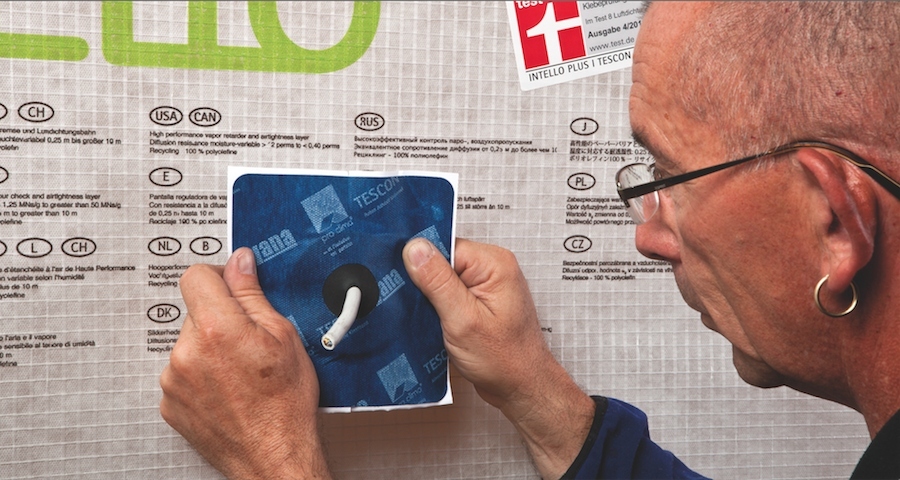
- Government
- Posted
Can Europe train seven million construction workers?
There is a great urgency, as Europe moves closer to the 2020 energy efficiency targets, to develop a skilled workforce that can work together to deliver low-energy projects. One EU initiative, Build Up Skills, has been designed to “stimulate the training of craftspeople and other on-site workers in the building sector on the topics of energy efficiency and renewable energy.”
By Devyn Olson-Sawyer
The scope of this need for upskilling cannot be understated: the Build Up Skills target group is around 7.6 million workers across the EU. Zoe Wildiers of the European Commission, while speaking in Dublin last year, said that the commission is seeking to address the lack of skills among Europe’s construction workforce, to meet the stringent energy efficiency targets set by the EU. However, she also stated that it was not just construction workers who lacked the necessary skills, but architects, engineers and other construction professionals. The next phase of European funding under Horizon 2020 will seek to tackle lack of knowledge in the professional sector.
Build Up Skills is a two phase programme. Pillar I saw activity from 28 EU member states plus Norway and Macedonia. It required each country to assess specific training needs of building construction workers (status quo analysis) and prepare a national roadmap with associated actions for meeting training needs. An important element of the national roadmap is that key national stakeholders confirm the findings and commit to the strategy to move forward. Pillar II is the implementation of selected actions from national roadmaps, through the development of qualifications and training schemes. In 2013, 11 of these projects were started, and 12 more began in 2014.
There are common themes between the projects, and many of the approaches show similar issues in the construction industries across Europe. Some of the repeated themes include the need for training of trainers, interfaces between the trades, the building as an overall system, registration schemes for upskilled workers and awareness-raising among the industry and consumers. Information on all Build Up Skills projects can be found here. Here is a look at what’s happening across Europe, country by country.
In Ireland, there are over 60,000 building construction workers that need to be trained, as under the National Energy Retrofit Programme (NERP) it is proposed that more than one million buildings nationwide must be retrofitted by 2020.
The Pillar I status quo analysis and national roadmap was completed by a consortium led by Limerick Institute of Technology, and including Dublin Institute of Technology, Institute of Technology Blanchardstown, the Irish Congress of Trade Unions, and the Construction Industry Federation.
One of the main issues identified within the roadmap was that construction workers lack the core knowledge in relation to low energy buildings, while another focus is on developing a culture within the construction sector which has quality as a core value. The final reports and findings from the status quo analysis can be found here.
Phase II in Ireland is the QualiBuild project. The project is piloting two training programmes to address the issue of many construction workers lacking the core knowledge in relation to the construction of, and retrofitting of, low energy buildings. These courses are a Foundation Energy Skills course for building construction workers, and a Train the Trainer course for experienced construction trainers. Both courses are now available for booking at www.QualiBuild.ie.
QualiBuild will also work with industry stakeholders on a quality building registration scheme, and run a quality building information and awareness campaign throughout the project.
In the UK, Pillar I was completed in May 2012. The conclusions from the status quo report indicated that, “there are a number of skills and knowledge gaps likely to impede the UK’s capacity to meet the 2020 energy efficiency targets. Furthermore the supply of training provision is severely limited in relation to emerging technologies, with pockets of specialist courses only, and limited demand preventing more widespread development of training.“
The report also state that more than 250,000 workers required training to help meet the UK’s 2020 energy efficiency targets, and need for ‘train the trainer’ provision in this area was also highlighted. Some of the skills and knowledge needs highlighted as needing to be urgently addressed in the UK construction workforce include:
• Understanding the principles of heat loss; understanding air quality, air tightness and ventilation requirements within buildings
• Knowledge of the range of energy efficiency measures, and their suitability for different building fabrics and ages, including pre-1919 stock and hard to treat buildings
• The sequence in which issues in buildings must be addressed in order to ensure maximum energy efficiency;
• Installation of a variety of renewable energy and related systems.
To implement Swebuild, the Swedish Build Up Skills project, leading players in the Swedish construction industry are collaborating with Energy Agencies of Sweden in the development of a training program for energy-efficient construction. Similar to the Irish QualiBuild programme, the intention is that over the three year funding period training materials will be developed, including the training of trainers with this content. These trainers will train workers around Sweden directly on construction sites. The targets for the project are for large-scale training leading to 500 educated trainers by 2016 and 18,000 trained craftsmen by 2017.
The QualiShell project emphasises the importance of knowledge and skills for energy efficient building, specifically in the details of the building envelope and in refurbishment. The project intends to implement national level qualifications schemes for installers of thermal insulation systems and for installers of high efficiency window systems. The consortium is comprised of industry associations, training and qualification bodies, and national agencies.
In Austria, the Build Up Skills project specifically emphasises across-the-crafts training, which is also an element of the Irish QualiBuild project. Lead by the Austrian Energy Agency, the pilot training programme will target foremen, skilled workers, craftsmen and unskilled workers to emphasise the importance of nearly zero energy building standards, understand the interplay of the trades, and avoid common faults and errors and their impact. Like QualiBuild, the CrossCraft project will look at financial mechanisms and a strategy to continue the programme within the sector once the pilot is finished.
This project is led by the Labour Construction Foundation, with partners from both the construction and training sector, and focuses on the improvement of the qualification system and training materials, along with a pilot testing programme. The topics they are covering are: installation of aluminium and PVC joinery; installation of insulation; energy efficiency in buildings; renewable energy systems in buildings; installing geothermal systems; installation of biomass, heating and air conditioning; and the further training of trainers in energy efficiency and renewable energy. The Spanish consortium is also looking at ways that vocational education and training system can more quickly respond to industry changes.
The Cyprus Energy Agency is leading this Build Up Skills project, along with partners in the training, qualification and industry sectors. While raising awareness around the issues of energy targets and the need for upskilling in energy efficiency, it will also implement five pilot training courses for workers, three training courses to train the trainers, and the development of three national qualification schemes.
The Estonian implementation of Build Up Skills is developing 14 different courses with training materials, and developing a pilot training programme for trainers. These courses are intended for both qualified and non-qualified workers in the following areas: construction workers; carpenters; construction finishers; those working with heating, plumbing and ventilation; installers of renewable energy systems; and bricklayers.
Finland – Best Energy Efficient Construction and Training Practices (Beep)
While the Beep project will develop teacher training schemes and construction worker training programmes, following research into best practice in energy efficient construction, it is also publishing various materials, such as slides, instruction cards, booklets and videos in multiple languages free for use by the industry. Topics include energy-efficiency and humidity, construction-weather protection, on-site heating and drainage structures, timber-frame construction for energy efficient structures, stone building for energy efficiency, building envelopes, technical building systems and energy efficiency, and quality assurance in energy efficient construction.







